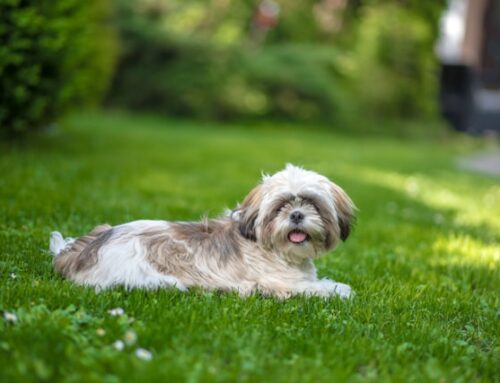Overview
Introduction: Life Span of Maltese

Welcome to the ultimate guide on prolonging the lifespan of your beloved Maltese furball! As a dog lover, you’re undoubtedly curious about the factors influencing the lifespan of these adorable creatures, especially during their Maltese puppy stage.
In this comprehensive article, we’ll delve into every aspect of Maltese longevity, from their puppyhood to their senior years. We’ll explore essential topics such as caring for Maltese puppies, understanding the unique characteristics of the Maltese dog breed, ensuring a healthy diet for adult Maltese, and maximizing the Maltese lifespan through proper care and attention.
A Brief Overview of Maltese Dogs
The Maltese dog breed, renowned for its elegance and charm, is a beloved member of the toy breeds. From playful Maltese puppies to mature Maltese dogs, this breed captivates pet owners with its endearing personality and stunning white coat. Known for their unwavering loyalty and affectionate nature, Maltese dogs make excellent companions for individuals seeking a devoted furry friend.
As a small and agile dog breed, Maltese dogs live relatively long lives, often reaching their late teens when provided with proper care and attention. Understanding the unique characteristics of the Maltese dog breed is essential for pet owners to ensure a healthy dog and a fulfilling companionship that lasts throughout the Maltese lifespan.
Significance of Understanding Maltese Life Span
Understanding the life span of Maltese dogs holds significant importance for pet owners and enthusiasts alike. From the playful antics of Maltese puppies to the loyal companionship of mature Maltese dogs, comprehending the factors influencing their longevity is essential for ensuring their well-being and quality of life.
By recognizing the unique characteristics of the Maltese dog breed and implementing proper care practices, pet owners can help their adorable pups lead healthy lives and thrive throughout their Maltese lifespan. This understanding empowers pet owners to make informed decisions regarding diet, exercise, and veterinary care, ultimately contributing to the overall health and happiness of their beloved Maltese companions.

Factors Influencing Maltese Life Span
Genetics and Breed Characteristics
Genetics play a crucial role in determining a Maltese dog’s lifespan and susceptibility to certain diseases. Responsible breeding practices can help mitigate the risk of hereditary health issues that may impact their longevity.
Maltese dogs are prone to certain genetic conditions such as luxating patella, portosystemic shunt, and white shaker syndrome, which can affect their quality of life and lifespan if not properly managed. Understanding these genetic predispositions and working with reputable breeders who prioritize health testing can help ensure a longer and healthier life for Maltese dogs.
Additionally, factors such as size, temperament, and activity level, which are influenced by genetics, can also impact their overall health and lifespan. Providing proper care, regular veterinary check-ups, and a healthy diet can help maximize the lifespan of Maltese dogs.
Environment and Living Conditions
The environment and living conditions during both puppyhood and adulthood play a crucial role in determining the lifespan of Maltese dogs. Providing a safe and stimulating environment for Maltese puppies is essential for their proper development and long-term health. Adequate socialization, exposure to different stimuli, and a balanced diet are key factors in ensuring they grow into healthy adult dogs.
As they mature, maintaining a consistent and loving home environment, free from stressors, is vital for their well-being and longevity. Regular exercise, mental stimulation, and access to quality veterinary care are also important factors in extending the lifespan of Maltese dogs. Creating a nurturing environment that meets their physical, mental, and emotional needs can help ensure that Maltese dogs live long and fulfilling lives.

Nutrition and Diet
Nutrition and diet are crucial factors in determining the lifespan of Maltese dogs, including puppies. It’s important to provide a balanced diet rich in protein, vitamins, and minerals to support their growth and development.
Maltese puppies should be fed small, frequent meals to prevent hypoglycemia and promote healthy weight gain. As adults, Maltese dogs benefit from a diet that meets their specific nutritional needs, which may include supplements like fish oil for a healthy skin and coat.
Overfeeding should be avoided to prevent obesity, and the number of feedings per day should be adjusted according to their age and activity level to maintain a healthy weight throughout their life.
Exercise and Physical Activity
Exercise and physical activity are vital components influencing the life span of Maltese dogs. As a Maltese puppy grows into adulthood, regular exercise becomes essential for maintaining their overall health and well-being. Despite their small size, Maltese dog breed still requires daily physical activity to stay fit and healthy. It’s the responsibility of the pet owner to ensure that their Maltese dog receives adequate exercise to prevent obesity and promote a healthy weight.
Engaging in regular play sessions, short walks, or even indoor games can help keep a Maltese dog mentally stimulated and physically active. Additionally, exercise can also reduce the risk of certain congenital diseases common in the Maltese breed, such as liver shunts. Spending time engaging in physical activities with their Maltese pup not only strengthens the bond between the owner and their pet but also contributes to ensuring a long and healthy life for the beloved companion. Regular visits to the vet can also help monitor the Maltese dog’s health and provide guidance on suitable exercise routines tailored to their specific needs.

Average Life Span of Maltese Dogs
Historical Trends in Life Expectancy
Historically, the average lifespan of Maltese dogs has been around 12 to 14 years. However, with advancements in veterinary care, nutrition, and overall pet care, Maltese dogs today are living longer than ever before. Many Maltese dogs now live well into their teens, with some even reaching their early twenties.
The oldest Maltese on record, named Chanel, lived to be an astounding 21 years old, showcasing the potential for these dogs to live long, healthy lives. Factors contributing to their extended lifespan include better access to healthcare, improved diets, and increased awareness of the importance of regular exercise and mental stimulation.
Responsible breeding practices have also helped reduce the prevalence of genetic disorders, further contributing to their longevity. Overall, the trend in Maltese dog life expectancy reflects the broader improvement in pet care standards over the years.
Recent Studies and Findings
Recent studies suggest that the average lifespan of Maltese dogs is between 12 to 15 years, with some living even longer with proper care and nutrition. Factors such as genetics, diet, exercise, and overall health play significant roles in determining a Maltese dog’s lifespan.
Regular veterinary check-ups, vaccinations, and preventative care can help extend their life expectancy. Additionally, providing a loving and stimulating environment, along with regular grooming and dental care, can contribute to a longer and healthier life for Maltese dogs.

Puppyhood and Early Development
Growth Stages and Milestones
Maltese puppyhood is an adorable stage marked by rapid growth and development. During the first few weeks, Maltese puppies are completely dependent on their mother for nourishment and warmth.
As they grow, they start exploring their surroundings, learning to walk and play. By around eight weeks, Maltese puppies are weaned and ready to be rehomed. During this time, they begin to learn basic commands and socialization skills, setting the foundation for their behavior as adults.
It’s essential to provide them with proper care, nutrition, and training during this critical period to ensure they grow into well-adjusted adult dogs.
Health Considerations for Maltese Puppy
During Maltese puppyhood and early development, several health considerations should be taken into account to ensure a healthy start in life. Maltese puppies are prone to certain health issues, such as hypoglycemia, dental problems, and luxating patella. To avoid these issues, it’s crucial to provide them with a balanced diet rich in nutrients and feed them small, frequent meals to prevent hypoglycemia.
Regular dental care, including brushing their teeth and providing dental chews, can help prevent dental issues. Additionally, regular vet check-ups and vaccinations are essential to monitor their health and prevent diseases. Proper socialization and training can also contribute to their overall well-being. By addressing these health considerations and providing attentive care, Maltese puppies can grow into healthy adult dogs.

Adult Stage: Prime Years
Maintaining Health and Vitality
During their adult years, Maltese dogs require regular care and attention to maintain their health and vitality. Providing a balanced diet suited to their nutritional needs, along with regular exercise, is essential for keeping them in good shape.
Maltese dogs have a long lifespan, so it’s important to monitor their weight and adjust their diet and exercise routine as they age to prevent obesity and other health issues. Regular grooming, including brushing their teeth and coat, can help prevent dental problems and keep their fur looking its best.
Additionally, regular vet check-ups are crucial for detecting and addressing any health issues early on. Providing a loving and stimulating environment, along with plenty of mental and physical stimulation, can help ensure that Maltese dogs remain happy and healthy throughout their adult years.
Common Health Issues and Remedies
During their adult years, Maltese dogs are prone to certain health issues that owners should be aware of. These include dental problems, such as tartar buildup and gum disease, which can be managed through regular dental care and a proper diet.
Additionally, Maltese dogs may be susceptible to luxating patella, a condition where the kneecap dislocates, so it’s important to provide them with regular exercise and maintain a healthy weight to reduce the risk. Another common issue is tear staining, which can be minimized by keeping the area around their eyes clean and dry. Regular vet check-ups and a balanced diet tailored to their nutritional needs can also help maintain their overall health.
Providing a safe and comfortable living environment and addressing any health issues promptly can help ensure that Maltese dogs live long and healthy lives.

Senior Years: Aging Gracefully
Signs of Aging in Maltese
As Maltese dogs age, there are several signs that owners should watch for to ensure their health and well-being. Common signs of aging in Maltese include a decrease in energy levels and activity, as well as changes in their sleeping patterns.
They may also experience weight gain or loss, changes in appetite, and a decrease in muscle tone. Additionally, older Maltese dogs may develop arthritis or other joint issues, leading to stiffness or difficulty moving.
Changes in their coat, such as dryness or thinning, and dental issues, such as tooth loss or gum disease, can also occur with age. Regular vet check-ups and a tailored care routine can help address these signs of aging and ensure that Maltese dogs remain comfortable and healthy in their later years.
Special Care and Attention for Senior Maltese
Senior Maltese dogs require special care and attention to ensure their health and well-being as they age. Providing a comfortable and safe environment is essential, including easy access to their bed and food bowls. Regular vet check-ups are crucial to monitor their health and address any age-related issues.
Senior Maltese may require a modified diet to meet their changing nutritional needs, as well as supplements to support joint health and cognitive function. Maintaining a regular grooming routine, including dental care, can help prevent discomfort and keep them looking their best.
Finally, providing plenty of love, attention, and mental stimulation can help keep senior Maltese happy and engaged as they navigate their golden years.
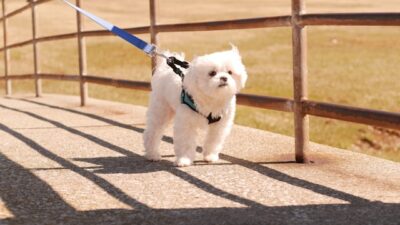
Longevity Records and Exceptional Cases
Remarkable Stories of Long-Lived Maltese
Longevity records and exceptional cases highlight remarkable stories of long-lived Maltese dogs, showcasing their resilience and well-being. Some Maltese dogs have defied expectations by living well into their late teens or even early twenties, surpassing typical breed life spans.
These exceptional cases often involve a combination of attentive care, a healthy lifestyle, and genetics contributing to their extended longevity. Celebrating these remarkable stories serves as a testament to the potential for Maltese dogs to enjoy long and fulfilling lives when provided with proper care and love.
Factors Contributing to Extended Life Spans
Factors contributing to extended life spans in Maltese dogs involve a combination of genetics, lifestyle, and attentive care. Dogs that have lived exceptionally long lives often benefit from a balanced diet, regular exercise, and routine veterinary care.
Additionally, genetics play a crucial role, as some Maltese may inherit traits that predispose them to longevity. Celebrating these exceptional cases underscores the importance of providing optimal care and attention to Maltese dogs, enhancing their chances of enjoying extended and healthy lives.
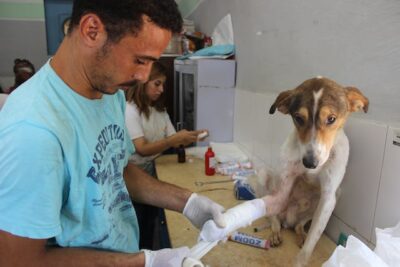
Health and Wellness Maintenance of Maltese Dog
Regular Veterinary Check-ups
Regular veterinary check-ups are crucial for maintaining the health and wellness of Maltese dogs. These check-ups allow veterinarians to monitor their overall health, detect any potential issues early, and provide preventive care.
During these visits, vets can administer necessary vaccinations, conduct routine tests, and provide guidance on nutrition, exercise, and dental care. Regular check-ups also allow for the early detection and treatment of common health issues in Maltese, such as dental problems, luxating patella, and tear staining.
By staying up-to-date with regular veterinary check-ups, owners can help ensure that their Maltese remains healthy and happy for years to come.
Proper Grooming Practices
Proper grooming practices are essential for maintaining the health and wellness of Maltese dogs. Their long, white coat requires regular brushing to prevent matting and tangling, as well as to remove dirt and debris. Bathing should be done occasionally using a mild dog shampoo to keep their coat clean and healthy.
Regular grooming also includes cleaning their ears to prevent infections and trimming their nails to avoid overgrowth and discomfort. Additionally, dental care is crucial, and owners should brush their Maltese’s teeth regularly and provide dental treats or toys to promote good oral health.
Proper grooming not only keeps Maltese dogs looking their best but also helps prevent skin issues and other health problems.
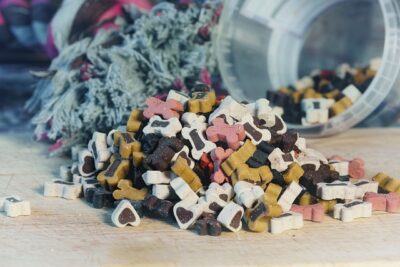
Importance of Nutrition for Longevity of Maltese
Recommended Diets for Maltese Dogs
Nutrition plays a crucial role in the longevity and overall health of Maltese dogs. A well-balanced diet rich in high-quality protein, essential fatty acids, vitamins, and minerals is essential for maintaining their health.
Maltese dogs are prone to dental issues, so feeding them dry kibble can help promote dental health by reducing plaque buildup. It’s important to avoid overfeeding, as Maltese dogs are prone to obesity, which can lead to various health problems.
Additionally, providing fresh water at all times is essential for their well-being. Consulting with a veterinarian for personalized dietary recommendations can help ensure that Maltese dogs receive the nutrition they need for a long and healthy life.
Dietary Supplements and Their Benefits
IDietary supplements can play a beneficial role in the longevity and health of Maltese dogs. Supplements such as fish oil can help maintain healthy skin and coat, reduce inflammation, and support joint health, which is important for this breed prone to luxating patella.
Probiotics can aid in digestion and promote a healthy gut, which is beneficial for Maltese dogs with sensitive stomachs. Additionally, supplements like glucosamine and chondroitin can support joint health and mobility, especially as Maltese dogs age.
However, it’s important to consult with a veterinarian before adding any supplements to a Maltese’s diet to ensure they are safe and appropriate for the individual dog’s needs.

Exercise and Mental Stimulation for Maltese
Suitable Activities for Maltese
Exercise and mental stimulation are vital for the health and well-being of Maltese dogs. Despite their small size, they are active and energetic, requiring daily walks and playtime to stay happy and healthy.
Interactive toys, such as puzzle feeders or treat-dispensing toys, can provide mental stimulation and prevent boredom. Obedience training and agility courses are also excellent ways to keep them mentally sharp and physically fit.
However, care should be taken not to over-exercise them, especially in hot weather, due to their sensitivity to heat. Providing a variety of activities that cater to their size and energy levels ensures that Maltese dogs remain active, engaged, and well-balanced pets.
Preventing Boredom and Behavioral Issues
Preventing boredom and behavioral issues in Maltese dogs requires a consistent exercise and mental stimulation routine. Daily walks, interactive play sessions, and obedience training can help keep them physically and mentally engaged. Providing a variety of toys, such as puzzle toys and chew toys, can also help prevent boredom and reduce the risk of destructive behaviors.
Regular socialization with other dogs and people is essential for their mental well-being and helps prevent fearfulness or aggression. Additionally, incorporating new activities and environments into their routine can provide mental stimulation and prevent them from becoming bored. By keeping them physically and mentally active, owners can help ensure that their Maltese remains happy, healthy, and well-behaved.
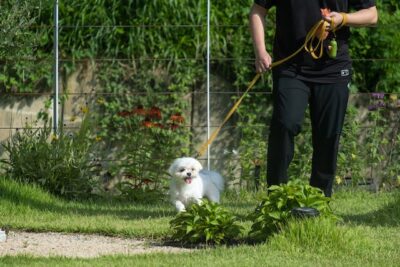
Environmental Considerations for Maltese
Creating a Safe and Comfortable Home Environment
Creating a safe and comfortable home environment is essential for the well-being of Maltese dogs. Since they are small and delicate, it’s important to ensure that your home is free of hazards such as small objects that they could swallow, toxic plants, and areas where they could get stuck or injured.
Providing a cozy and comfortable bed in a quiet corner of your home can give them a sense of security. Additionally, maintaining a consistent routine and providing plenty of opportunities for mental and physical stimulation can help prevent anxiety and boredom.
Regular grooming and dental care are also important aspects of creating a healthy and happy environment for your Maltese.
Outdoor Safety Measures
Outdoor safety measures are crucial for Maltese dogs due to their small size and delicate nature. When outdoors, always supervise them to prevent accidents or attacks by other animals. Ensure that your yard is securely fenced to prevent them from wandering off or encountering dangerous wildlife.
During hot weather, provide plenty of shade and fresh water to prevent heatstroke. In cold weather, consider using a dog sweater or jacket to keep them warm. Avoid walking them on hot pavement, as their sensitive paw pads can easily burn. By taking these precautions, you can help ensure that your Maltese stays safe and healthy while enjoying the outdoors.

Breeding Practices and Life Span of Maltese
Impact of Selective Breeding on Longevity
Selective breeding practices can have a significant impact on the longevity of Maltese dogs. Responsible breeders focus on breeding for health and longevity, selecting breeding pairs based on genetic health and lifespan indicators.
By avoiding breeding practices that prioritize appearance over health, such as breeding for extreme traits or inbreeding, breeders can help reduce the risk of genetic disorders and increase the overall lifespan of the Maltese breed.
Additionally, proper health screening of breeding dogs can help identify and avoid passing on hereditary health issues. Through careful selection and breeding practices, breeders can contribute to the long and healthy lives of Maltese dogs.
Ethical Considerations in Breeding Maltese
Ethical breeding practices play a crucial role in ensuring the health and longevity of Maltese dogs. Responsible breeders prioritize the well-being of the dogs over profit, focusing on breeding for health, temperament, and breed standards. They conduct health screenings on breeding dogs to identify and eliminate hereditary health issues.
Additionally, ethical breeders provide proper care and socialization for both parent dogs and puppies, ensuring they are raised in a loving environment. They also prioritize finding suitable homes for the puppies and provide ongoing support and education to new owners.
By following ethical breeding practices, breeders can help preserve the Maltese breed and contribute to the overall well-being and longevity of the dogs.

Addressing Common Myths and Misconceptions About Maltese
Debunking Misinformation about Maltese Life Span
Addressing common myths and misconceptions about Maltese dogs is important for understanding their life span accurately. One common myth is that Maltese dogs have a short life span, but in reality, with proper care and health management, they can live well into their teens, with some even reaching their early twenties.
Another misconception is that Maltese dogs are delicate and prone to health issues, which can affect their life span. While they do require special care due to their small size, they are generally healthy dogs with a life expectancy similar to other small breeds. Providing a nutritious diet, regular exercise, proper grooming, and regular veterinary care can help ensure a long and healthy life for Maltese dogs.
Clarifying Doubts and Rumors
Addressing common myths and misconceptions about Maltese dogs is crucial for dispelling doubts and rumors. One prevalent myth is that Maltese dogs are high-maintenance due to their long, white coats. While they do require regular grooming, their coats can be kept in a short, easy-to-maintain style.
Another misconception is that Maltese dogs are not suitable for families with children. In reality, Maltese dogs can be excellent family pets when properly socialized and supervised around young children.
Additionally, some believe that Maltese dogs are fragile and prone to health issues, but with proper care and regular veterinary check-ups, they can lead healthy lives. Understanding the truth about Maltese dogs can help potential owners make informed decisions about their suitability as pets.

Extending Life Span Through Careful Management
Proactive Health Measures
Extending the life span of Maltese dogs involves implementing proactive health measures and careful management. This includes regular veterinary check-ups to detect and address any health issues early on, as well as maintaining a balanced diet and exercise regimen tailored to their needs.
Additionally, providing a safe and stimulating environment, along with proper grooming and dental care, supports their overall well-being and contributes to a longer, healthier life for these beloved companions.
Lifestyle Adjustments for Better Longevity
Extending the life span of Maltese dogs involves making lifestyle adjustments tailored to their specific needs. While Maltese dogs generally live longer than some larger breeds, careful management is key to ensuring they remain healthy into their senior years. This includes providing regular exercise, a balanced diet, and routine veterinary care to address any age-related health concerns.
By implementing these lifestyle adjustments, Maltese owners can help their furry companions enjoy a longer, healthier life compared to many other breeds, aligning with the recommendations of humane societies for the care of older dogs.

Summary: Key Takeaways
Understanding and addressing the factors influencing the life span of Maltese dogs is essential for promoting their health and longevity. From genetics and nutrition to exercise and environmental considerations, every aspect plays a role in shaping their overall health and well-being.
Emphasizing the Importance of Responsible Ownership As a Maltese dog owner, you have the power to positively impact your pet’s life span through responsible ownership practices. Prioritize their health, safety, and happiness to ensure they live a long, fulfilling life by your side.
FAQs About Maltese Life Span
- What is the average life expectancy of a Maltese dog compared to larger breeds?
- Maltese dogs typically live longer than many larger dog breeds. On average, a Maltese can live between 12 to 15 years, whereas larger breeds may have shorter life spans.
- How can I ensure my Maltese lives a long and healthy life?
- Providing proper care and attention is essential. This includes regular visits to the vet, a balanced diet tailored to their needs, regular exercise, and preventive measures against common health issues.
- Are Maltese dogs prone to specific health problems as they age?
- While Maltese dogs are generally healthy, they may be susceptible to certain age-related conditions. Regular check-ups with a vet can help monitor and address any potential health concerns, ensuring your older dog stays healthy and comfortable.
- Compared to other breeds, do Maltese dogs have a longer life expectancy?
- Yes, Maltese dogs tend to have longer life expectancies compared to many other dog breeds. However, proper care and attention are still essential to ensure your Maltese lives a healthy and fulfilling life.
- Should I adopt an older Maltese from a humane society?
- Adopting an older Maltese from a humane society can be a rewarding experience. While older dogs may have different needs than puppies, they still have much love to give and can make wonderful companions with proper care and attention.

Conclusion: Life Span of Maltese
In conclusion, comprehending and addressing the factors that influence the lifespan of Maltese dogs is crucial for fostering their health and longevity. Whether you have a white Maltese or any other color variant, providing quality care, attention, and love is paramount.
With diligent care, even though Maltese are smaller compared to large dogs, you can ensure that your furry companion enjoys a long, happy life by your side. Here’s to many more years of joy and companionship with your beloved Maltese furball!
If you’re interested in bringing home a Maltese puppy in Georgia or surrounding areas, consider checking out our available puppies. We offer a variety of adorable Maltese puppies for sale in Georgia, ready to bring endless love and happiness into your home.



